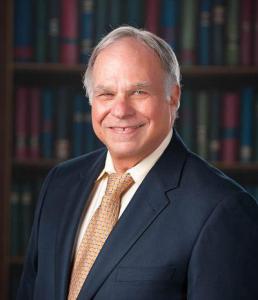Michael D. Finn, Founder of the Finn Law Group, Explains the “Unconscionable Suppression” of the Timeshare Market
“What’s the difference between a used car and a used timeshare? Value.” – Michael D. Finn
LOS ANGELES, CA, UNITED STATES, February 15, 2019 /EINPresswire.com/ -- Michael D. Finn, the founder of Finn Law Group, has been a practicing attorney for over 40 years, working on behalf of consumers with real estate, timeshare and fractional ownership issues. In addition, he’s been able to assist clients with mortgage modifications, foreclosure defense and bankruptcy alternatives. Now, the talented attorney shares his views on the “unconscionable suppression” of the timeshare market.
“What’s the difference between a used car and a used timeshare? Value,” states Finn, “A continuously maintained large timeshare unit in a nice resort does not retain its ‘value,’ while a four-year-old sedan with over 50,000 miles on it could be easily resold in the secondary vehicle market with a recovery of over half of its original cost.”
This cavernous disparity in values occurs because there are relatively healthy secondary markets for many consumer products and next to none for timeshares. If someone takes a look at the timeshare industry’s tightfisted control of their markets, where no viable secondary market is permitted to exist, let alone thrive or prosper, they will begin to understand the complexity of the issue. For example, each and every one of the timeshare developers who file documents with the Securities and Exchange Commission to support their public filing requirements have included language in each of their filings that specifically addresses the secondary resale market as a threat to their bottom line. A direct quote from Bluegreen’s SEC filing states, “The resale market for VOIs [vacation ownership interest] could adversely affect our business.”
“It is clear that these developers, in their own words and in their own public filings, all express open antagonism to the very existence of a secondary timeshare resale market!” exclaims Finn. “These developer resort SEC filings conclusively establish that even simply stepping out of the resale channel and permitting other market forces to come in to help stabilize the resale timeshare marketplace without interference from the developers is not an option to be considered, clearly because of the perceived threat to their bottom line.”
While starving the resale market may initially be good for the bottom line, the long-term disadvantages are more dire. Buyers will, over some period of time, get laid off or lose their job, get divorced or otherwise lose their spouse, become sickly or disabled, or die. What happens next in the absence of a structured secondary resale market?
“What if that triggering event happens sooner rather than later and there is still a significant mortgage balance due to the developer?” Finn demands. “What if, balance or not, the developer refuses to take back the interest, leaving ongoing and rising maintenance fees running? Legally that owner remains personally liable for those fees, despite the fact that they purchased the timeshare at full retail cost and supported the resort as long as they could afford to.”
Resort personnel often will then recommend the services of a so called “resale company” who will, more often than not, require an upfront fee to “list” the interest on a website where no one can accurately determine who will see it. The timeshare industry’s position is not only short sighted and socially irresponsible, it’s not sustainable.
A strong resale market will strengthen the industry. There is no better time than now to make the important and essential changes that might, in the short term, slow down profitability, but in the long term, turn the timeshare industry into a more socially responsible and far more sustainable industry for decades to come.
“Timeshare developers should take a hard look at themselves and their industry,” concludes Finn, “Take pride, not just profit, from making family vacations an affordable part of the American lifestyle by opening up that opportunity to even more folks.”
Aurora DeRose
Aurora DeRose
+1 310-396-6090
email us here

